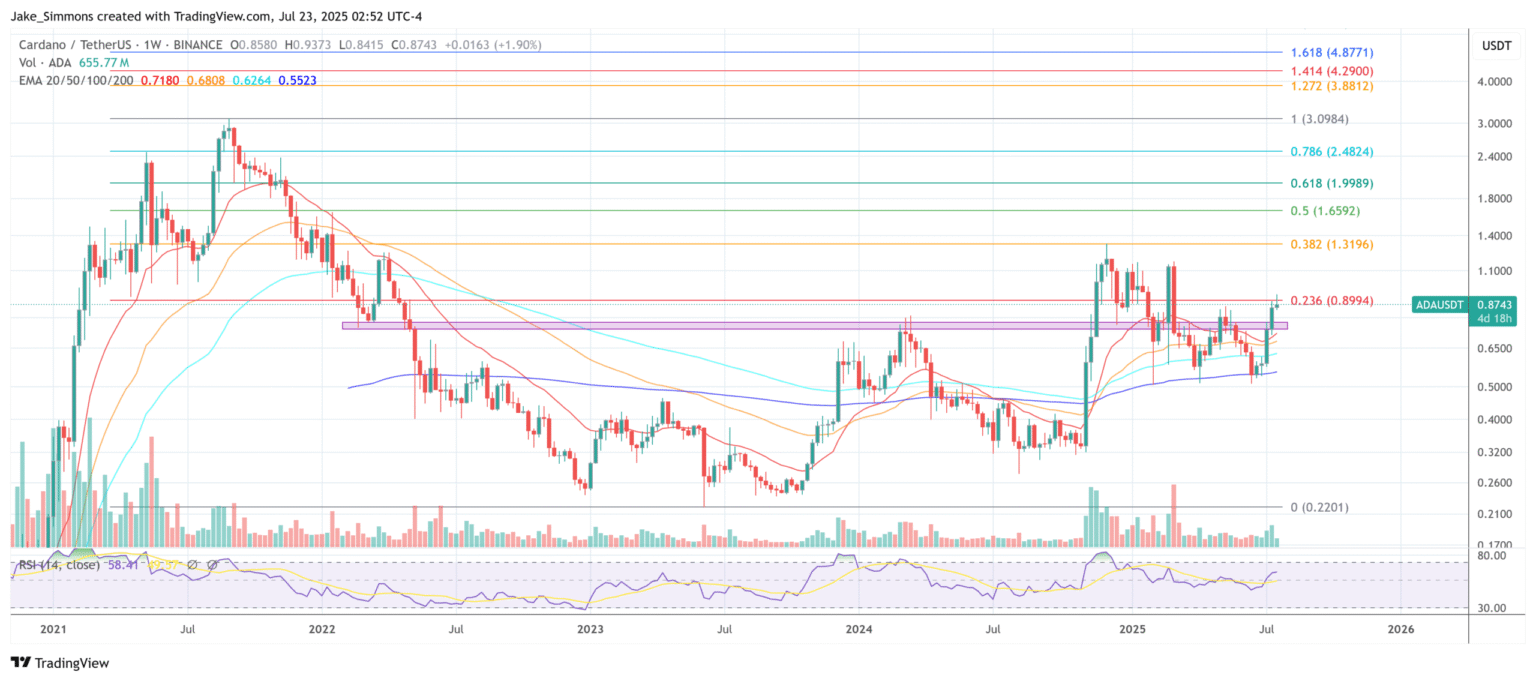The world of blockchain technology continues to evolve at a rapid pace, and in a groundbreaking development, Cardano is set to bring its innovative smart contract capabilities to Bitcoin. This bold move by Input Output (IO), the pioneering team behind Cardano, aims to bridge the gap between two leading blockchain technologies without altering Bitcoin’s core protocols. By facilitating this integration, IO seeks to harness the immense liquidity of Bitcoin while offering advanced smart contract functionality typical of Cardano’s ecosystem. This article delves into the intricacies of this integration, exploring its potential impact on both blockchain communities and the broader cryptocurrency landscape.
Integrating Cardano Smart Contracts into Bitcoin
Revolutionary Compilation Process
Cardano’s engineering team at IO has developed a sophisticated compilation pipeline that allows Cardano’s smart contracts, initially written in modern programming languages such as Python, TypeScript, or Scala, to execute within Bitcoin’s environment. The remarkable aspect of this achievement is that it does not require any modification to Bitcoin’s existing consensus code. This has been articulated in a comprehensive technical thread released by IO, which highlights the detailed process and the innovative technologies employed.
The process involves converting high-level Cardano smart contracts into Untyped Plutus Core (UPLC), a functional bytecode. This UPLC is then serialized and processed by the Control-Environment-Continuation (CEK) machine, which converts it into RISC-V—a simplified CPU instruction set. This RISC-V program acts as the verifiable payload for Bitcoin, with the original UPLC being utilized at runtime. This architectural design ensures that Bitcoin remains unchanged while enabling complex transactions and functionalities.
The Role of BitVMX in Secure Transactions
To ensure the security and integrity of these transactions, IO leverages BitVMX, a protocol evolving from the innovative BitVM concept. BitVMX is designed for ‘disputable computation’ on Bitcoin, operating on a model that ensures trust-minimized interactions. It uses an optimistic-roll-up approach, facilitating off-chain execution with on-chain fraud proofs. This enables developers to manage transaction fees in BTC directly from their wallets, enhancing usability and security.
IO’s ambition with this initiative is to extend Cardano’s eUTxO-based smart contract ecosystem into Bitcoin’s substantial liquidity pool. This could facilitate a range of applications, including decentralized lending, swaps, and non-fungible token (NFT) backed loans, all while maintaining BTC as collateral and avoiding the need for sidechains.
Potential Implications for Bitcoin’s Ecosystem
This development, while innovatively bridging blockchain technologies, poses intriguing questions for Bitcoin purists. The integration recalls the 2021 Taproot upgrade, which introduced enhanced scripting capabilities to Bitcoin, and the 2023 BitVM proposal, which demonstrated the feasibility of verifying arbitrary computation through Bitcoin nodes. However, IO’s solution maintains Bitcoin’s core architecture, adhering to the non-negotiable design principles emphasized by Bitcoin’s community.
While the compilation flow is still under active development, with no set date for a mainnet launch or gas-cost benchmarks, the potential for a complete bridge between Cardano and Bitcoin represents a significant milestone in blockchain interoperability.
FAQs
Will Bitcoin’s core protocols change due to this integration?
No, IO’s compilation process is designed to execute Cardano smart contracts on Bitcoin without altering Bitcoin’s core protocols. It uses an auxiliary virtual CPU for processing, ensuring the base layer remains intact.
What benefits does this integration offer to Bitcoin users?
Bitcoin users could gain access to Cardano’s advanced smart contract capabilities, enabling new financial applications such as decentralized lending and NFT-backed loans without relinquishing control of their BTC assets.
How does BitVMX ensure secure transactions in this context?
BitVMX employs a trust-minimized protocol and an optimistic-roll-up mechanism, facilitating secure off-chain execution with verifiable on-chain fraud proofs. This enhances transaction security and trustworthiness within Bitcoin’s network.
Is this integration ready for immediate deployment?
The integration is still under development, with no finalized mainnet launch date. IO is actively working on addressing engineering challenges related to transaction sizes, latency, and user experience.
In conclusion, this ambitious initiative by IO promises to enhance Bitcoin with Cardano’s sophisticated smart contract functionalities, paving the way for more complex financial instruments within the Bitcoin ecosystem. As these developments unfold, stakeholders from both blockchain communities will be keenly observing the outcomes of this integration.

